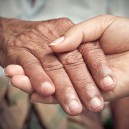How to Become a Licensed Professional Counselor in Hawaii
 To be considered a Licensed Professional Counselor in the state of Hawaii, you will need to have earned a Master’s degree in counseling. In this state, a counselor is credentialed in reference to a Licensed Mental Health Counselor, also known as (LMHC). You will need to check with Hawaii’s education guidelines in order to ensure you are studying everything you need to at your college or university you are enrolled in. You not only need to obtain a Master’s degree, you will need to make sure you have supervised practice and complete as many internship hours as your state specifies.
To be considered a Licensed Professional Counselor in the state of Hawaii, you will need to have earned a Master’s degree in counseling. In this state, a counselor is credentialed in reference to a Licensed Mental Health Counselor, also known as (LMHC). You will need to check with Hawaii’s education guidelines in order to ensure you are studying everything you need to at your college or university you are enrolled in. You not only need to obtain a Master’s degree, you will need to make sure you have supervised practice and complete as many internship hours as your state specifies.
What Are the Requirements to Become a Counselor in Hawaii?
To qualify for licensure as an LMHC in Hawaii, you will have to meet the Hawaii Board requirements. All college or university credits earned in pursuit of your counseling license must be earned at a college or university program that is accredited by the Council for Accreditation of Counseling & Related Programs.
If you have attended another college/university, you will be required to have that specific college/university send your transcripts that you have earned along with your Master’s Degree or your Doctoral Degree to the Hawaii Board. There is a fee of $60 that should be sent to the Commerce and Consumer Affairs. This is not the licensing fee that will be due at a later time. Make sure you have your postgraduate supervisors and your practicum supervisors notarize the form that is in reference to verifying your supervision and practice.
What Are the Supervised Experience Requirements to Become a Counselor in Hawaii?
For the LMHC, you will be required to counsel under professional supervision between 2-4 years. The professional who will supervise you will be either a clinical social worker, counselor of mental health, psychologist, psychiatrist, advanced practice nurse, or a family and marriage therapist.
The total supervised practice must be a minimum of 3,000 hours. In that time, you will need 100 hours of clinical supervision face to face with clients. To show proof of all your supervised experiences, you will need related verification forms that need to be filled out by the clinical supervisor. Make sure the verification forms are notarized by the professional(s).
What Are the Examination Requirements to Become a Counselor in Hawaii?
You will have to hold a Master’s or Doctoral Degree in counseling. The degree you hold must include 70 two-quarter hours of coursework or 48 semester hours. You need to have at least two semesters of practicum work. This type of work is to have each three semester hours. You need to have studied the following for at least three semester hours each:
- Lifestyle and career development
- Counseling theories and applications
- Group theory and practice
- Human growth and development
- Test and measurement
- Behavior appraisal
- Research and program evaluation
- Ethics and professional orientation
- Cultural and social foundations
Note: For more information on how to become a counselor in the state of Hawaii, please visit the Board of Behavioral Health and Therapy.
Counselor Career Outlook In Hawaii
The Bureau of Labor Statistics reports that substance abuse, mental health, and behavioral disorder counselors in Hawaii earn an annual median salary of $57,410. The top 10% earn upwards of $100,410. Clinical and counseling psychologists in the state earn a median annual salary of $101,980 while the most highly-paid professionals make around $123,220.
Schools with Degree Programs Accepting Students from Hawaii
Additional Resources for Hawaii Applicants:
- Hawaii Psychologist Licensing
- Hawaii Marriage and Family Therapist Licensing
- Explore Additional Counseling Careers
2022 US Bureau of Labor Statistics clinical and counseling psychologists and substance abuse, behavioral disorder, and mental health counselors are based on national data, not school-specific information. Conditions in your area may vary. Data accessed August 2023.































